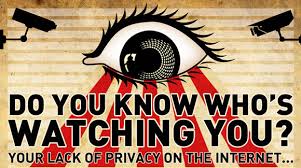
Privacy is dead-- at least as your parents and grandparents knew it. Today, you surrender it piecemeal by getting your driver’s license, applying for some government benefit, opening a bank account, accessing the health-care system, or using some freebe on the Internet. Personal data is now a regularly traded commodity.
As mentioned in the last post, effective reclamation of personal privacy requires one to become semi-anonymous. To strategically compartmentalize your life so that all roads leading to "you" dead-end at a place (either physical or virtual) where "you" cannot actually be found.
It probably comes as no great shock to learn that this is not a universally popular concept. The prospect of mass self-deletion from the informational radar is not generally regarded as a "good thing." Although related, "privacy" and "anonymity" are often seen as competing concepts. While privacy is generally seen as a natural desire or God-given right, the seeker of anonymity is often suspected of being engaged in something illegal or shameful requiring concealment. Fortunately, that notion is beginning to fade.
But societal push-back is somewhat understandable. Although the tools outlined here are intended only for use by law-abiding people who simply wish to be left alone, the reality is that terrorists and criminals can and do make use of stealth addresses, anonymous Internet access, and corporate fronts that blur the true ownership of bank accounts, vehicles, and housing. But bad guys also use cars, airplanes, diesel fuel, phones, and fertilizer-- and nobody would seriously suggest that these things not be available for legitimate purposes, right?
So for now at least, extreme privacy seekers more-or-less get a pass. Although serious enough about our privacy to make a lifestyle out of it, we are considered too weird, too few, and too insignificant to bother with-- exactly how we wish to be regarded. "Privacy People" (at least those of us willing to take matters to this level) tend to be "soft anarchists." Although we readily acknowledge that rules and societal standards are necessary, we're realistic enough to know that nobody would want to live in a world where all of the rules are enforced all of the time.
I recommend
Downvoting a post can decrease pending rewards and make it less visible. Common reasons:
Submit
This post received a 2.5% upvote from @randowhale thanks to @vysmek! For more information, click here!
Downvoting a post can decrease pending rewards and make it less visible. Common reasons:
Submit
Thank you sir.
I'm trying to develop a one-stop shop for all things privacy, focused more on the hard-core "how to" stuff rather than theories and so forth.
Downvoting a post can decrease pending rewards and make it less visible. Common reasons:
Submit
Does this work and is it feasible in the commonwealths?
Downvoting a post can decrease pending rewards and make it less visible. Common reasons:
Submit
I don't know a lot about specific identity documents and so forth in the Commonwealths, but would imagine that the principles are applicable, after some local tweaking. Most of these strategies involve quietly manipulating the system, so in just about any Western-style democracy, they could be retrofitted to work. But my main idea is to provide a forum for others to discuss what they know and what they've tried-- so any reader commentary regarding non-US democracies is certainly welcome. Thanks for reading!
Downvoting a post can decrease pending rewards and make it less visible. Common reasons:
Submit